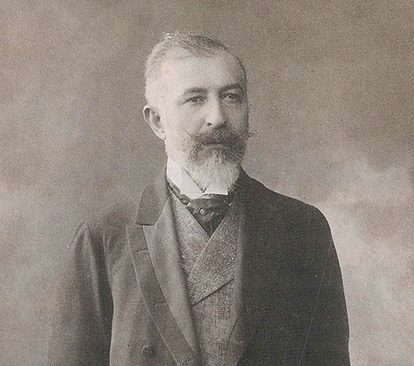Aşk-ı Memnu (عشق ممنوع) by Halit Ziya Uşaklıgil
Reviewed by Seda Karamanli
Halit Ziya Uşaklıgil (1865-1945) is a well-known name in the Turkish literary milieu. He not only introduced Italian and French literary works to Turkish readers through translation but also authored a series of novels, among them Aşk-ı Memnu (Forbidden Love), one of the most popular Turkish novels ever published.
His novel was initially serialised in the literary magazine Servet-i Fünun (The Wealth of Arts/Sciences) from February 9, 1899, to May 17, 1900, before being published as a book in 1925 by Alim Printing House. Aşk-ı Memnu is such a valued work in Turkey that it has been adapted into a play and a libretto for an opera, in addition to two television adaptations (1975 and 2008), one of them becoming an international success.
The novel narrates a poignant story set in 19th-century Istanbul, revolving around a love affair that concludes tragically. Admittedly inspired by the character of Emma in Flaubert’s Madame Bovary, the female character in Aşk-ı Memnu, Bihter, becomes bored with her marriage to an old businessman from Istanbul. Defying societal norms, she initiates an extramarital affair with a younger man. For Bihter, her desires are more important than convention, and instead of suppressing them, she embraces her passions without considering the cost.
The narrator in Aşk-ı Memnu vividly portrays Bihter’s emotions, self-questioning, and inner conflicts in the face of an irresistible, forbidden love, delving deep into her psyche with such detail that the reader empathises with her. The novel portrays the conflicts of a woman who strives to establish her individuality, the clashes she faces with the external world in trying to assert her identity, and how these conflicts ultimately lead to her downfall.
Aşk-ı Memnu is a brave story that deals with extremely taboo subjects: female love, lust, and rebellion, and, as seen in other 19th-century European works, it effectively incorporates realist tropes of genetics and determinism into its narrative. Through its astute observations and detailed descriptions, Aşk-ı Memnu marks a significant turning point in Turkish literature by reflecting the Westernization of Turkish society and culture.
You can find the book in the Aga Khan Library Rare Books Collection: PL248.U78 A74 1925
Bibliographical Sources
Moran, B. (2011). Türk Romanına Eleştirel Bir Bakış, Istanbul: Iletişim.
Uşaklıgil, Halit Ziya. (1998). Hikaye. Istanbul: Yapı Kredi.
Ileri, S. (2016). “Aşk-ı Memnu ya da Uzun Bir Kışın Siyah Günleri.” In Aşk-ı Memnu – Ozgun Metin. Istanbul: Everest.
